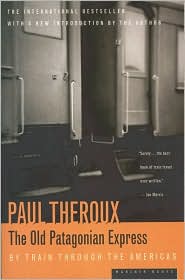
I first became aware of this book when Paul mentioned it on his blog a while back. I picked it up and it sat on my bookshelf for a few months, but finally read it yesterday. I enjoyed the book, and will be reading the author's other books, The Tipping Point and Blink.
Outliers studies all of the factors that lead to great successes (things that lie far outside the normal range) that have nothing to do with the people themselves. The common belief is that there are some people who were born into poverty, for example, and were able to achieve great feats- and wealth- with spirit and determination. While strong spirit and determination are certainly factors, they are probably less responsible than is generally thought.
An example from the beginning of the book states that most (an overwhelming number, in fact) of Canada's upper league and professional hockey players are born in January, February, or March. Are people born at the beginning of the year more innately talented at hockey than someone born in September? Of course not; but it turns out that the cutoff date for youth leagues is January 1. Someone who turns ten on January 2 is in the same league as someone who doesn't turn ten until October or November. That extra year of physical maturity often leads to team scouts picking these boys for higher league teams, where the boys practice more and receive more and better coaching. By the time they're eighteen they actually are better than their later-born counterparts, but it all started with being a little older when the league started.
The book is full of examples and stories that illustrate that the world works on a much larger and more complicated scale than we often consider, but in the end this provides more complete and rational answers. Are Asians better at math by sheer virtue of being Asian? No, but a different number system might be a start, along with rice patties. (You'll have to read the book in order to put all of that together, but I assure you, it makes quite a bit of sense.)
In then end, that's what I took away most from the book: stuff makes sense if you look deeply enough. If you see a pattern, there's a reason. The outliers in the world, statistical anomalies like Canadian hockey players, Bill Gates, the Beatles, and the fact that fourteen of the seventy-five wealthiest people of all time were born in the United States between 1831 and 1840- they all make sense. And to me, the greatest reward of learning is the hope that, eventually, it'll all make a little bit more sense.
